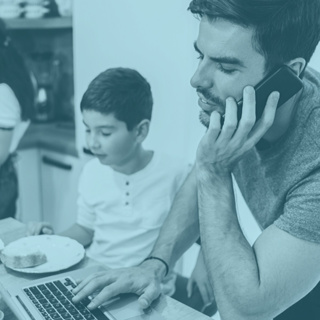
The Delivery-Optimized Future of Food
The spike in online ordering and food delivery—a trend that's particularly relevant now—is evidence of how tech is fundamentally changing how and what we eat. Is this the end of the traditional restaurant experience as we know it?In this conversation between Virtual Kitchen Co. CEO Ken Chong, Snackpass CEO Kevin Tan, a16z general parter Andrew Chen, and host Lauren Murrow, we discuss what's driving this transformation, the infusion of data into the restaurant industry, how take-out and delivery is becoming surprisingly social, and the specter of the "kitchenless home."Virtual Kitchen Co. is a network of delivery-only kitchens that partners with restaurants to expand their reach without opening additional brick-and-mortar locations. Snackpass is a food-ordering app currently on college campuses in which customers can order ahead at restaurants and skip the line. In this discussion, both CEOs explain what their business models could mean for the future of dining and cooking.This episode was recorded on-site at the a16z Summit in November 2019.
25 Mars 202018min

Remote Work and Our New Reality
23 Mars 202019min

When Medicine Goes Virtual
We’re at a moment where we are now seeing medicine go virtual faster, and at a scale that it has never done before. In this conversation, a16z bio general partners Vijay Pande and Julie Yoo, who come from the worlds of bio, technology and care delivery, talk with Hanne Tidnam all about what exactly virtual care and “telemedicine” is... and what it isn’t; what it works well for, what doesn’t (yet), and where there’s potential; and finally, the current pain points (including regulation), and what we’ll learn from this current moment for the next generation of virtual medicine tools.
19 Mars 202028min

Labs for Diagnostics: Then, Now, and Next
A lot's going on in the world of healthcare right now, and one topic that's especially relevant is how diagnostic labs work. In this episode with Dave King, Executive Chairman of Lab Corp (one of the largest clinical lab networks in the world) and a16z's General Partner Jorge Conde and Hanne Tidnam, we cover the evolution of the modern lab over the past 50 years, especially as new technologies and new tests are added; how tests go from specialized to mainstream and widely available; and who pays for most tests and how reimbursement affects all this. We also discuss where lab information flows—in electronic health records and in the health system at large—and touch on what the lab of the future might be like.
17 Mars 202035min

How a16z's Crypto Startup School Went Remote
On February 21, Andreessen Horowitz kicked off its very first Crypto Startup School, with 45 students from around the U.S. and three countries gathering to learn how to build crypto projects. But just two weeks into the seven-week course, community spread of the novel coronavirus meant the school had to go remote — not just for the health and safety of everyone involved, but for others too, given the recommendations around social distancing and the importance of “flattening the curve”.Marketing partner Kim Milosevich and Jesse Walden, former founder of Mediachain who’s helping lead our Crypto Startup School, chat with a16z crypto editor Zoran Basich — in this hallway-style episode of the a16z Podcast — about virtual learning and collaboration in a new, uncharted world.
14 Mars 202013min

When Fintech Meets Social
The last financial crisis prompted many consumers to reassess their banking expectations—none more so than millennials and Gen-Z-ers. While revealing one's financial information was once considered taboo, now consumers are more apt than ever to openly discuss money and debt on online platforms. It's a trend that's evident on both ends of the spectrum, whether that’s people divulging their crushing levels of debt on Twitter and Instagram (#debtfreejourney), bragging about their credit scores, or bemoaning their latest stock trades. And the repercussions extend far beyond social media. In this conversation with fintech general partner Anish Acharya (a former product manager at Credit Karma), consumer tech partner D'Arcy Coolican (a social+ fintech founder himself), and host Lauren Murrow, we discuss why the "holy grail" of social plus fintech is both so challenging and, potentially, so rewarding. We cover which products and companies are taking advantage of it (some in rather novel ways), how it's being driven by various subcultures online, and why this shift is happening now.
12 Mars 202023min

Innovation Through Software Development and IT
One of the recurring themes we talk about a lot on the a16z Podcast is how software changes organizations, and vice versa... More broadly: it’s really about how companies of all kinds innovate with the org structures and tools that they have. But we've come a long way from the question of "does IT matter" to answering the question of what org structures, processes, architectures, and roles DO matter when it comes to companies -- of all sizes -- innovating through software and more. So in this episode (a re-run of a popular episode from a couple years ago), two of the authors of the book Accelerate: The Science of Lean Software and DevOps, by Nicole Forsgren, Jez Humble, and Jean Kim join Sonal Chokshi to share best practices and large-scale findings about high performing companies (including those who may not even think they’re tech companies). Nicole was co-founder and CEO of Dora, which was acquired by Google in December 2018; she will soon be joining GitHub as VP of Research & Strategy. Jez was CTO at DORA; is currently in Developer Relations at Google Cloud; and is the co-author of the books The DevOps Handbook, Lean Enterprise, and Continuous Delivery.
6 Mars 202045min

The Open Source CIO
In 2014, in "Why There Will Never Be Another Red Hat," Peter Levine argued that Red Hat’s open source business model of commercializing support and services was highly difficult to replicate. Instead, he predicted the future of open source companies would be open source-as-a-service. And today SaaS has emerged as the dominant business model.In this podcast, recorded as a hallway-style conversation as part of the a16z Innovation Summit last year, Peter chats with Red Hat CIO, Mike Kelly, about what it means to be an open source CIO today – and how even Red Hat is evolving in the open SaaS era. They cover everything from why open hybrid has become the dominant enterprise architecture to how CIOs should think about adopting new technologies to what it takes for an M&A to be successful, beyond the spreadsheets.
28 Feb 202020min





















